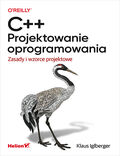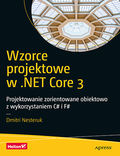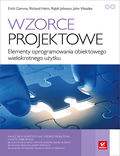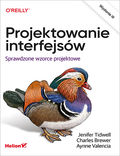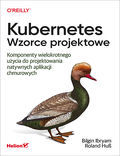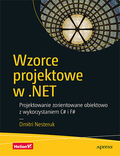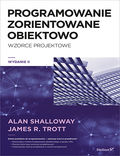#include <iostream>
#include <string>
#include <vector>
const std::string operators("*/+-");
class Multiply;
class Divided;
class Add;
class Subtract;
class Interpreter{
protected:
std::vector<std::string> equation;
std::vector<std::string>::iterator findOperator(std::vector<std::string> &equation, std::string operatorName){
for(std::vector<std::string>::iterator i = equation.begin(); i < equation.end(); i++){
if((*i) == operatorName)
return i;
}
return equation.end();
}
void parseString(std::string equation){
std::string::size_type index = equation.find_first_of(operators);
while(index != std::string::npos){
if(index != 0){
this->equation.push_back(equation.substr(0, index));
equation.erase(0, index);
}
this->equation.push_back(equation.substr(0, 1));
equation.erase(0, 1);
index = equation.find_first_of(operators);
}
if(!equation.empty()){
this->equation.push_back(equation);
}
}
virtual void interprete(std::vector<std::string> & equation){}
Interpreter* multiplyOperation;
Interpreter* divideOperation;
Interpreter* addOperation;
Interpreter* subtractOperation;
public:
Interpreter(std::string equation);
Interpreter(){
multiplyOperation = divideOperation = addOperation = subtractOperation = NULL;
}
virtual ~Interpreter(){
if(multiplyOperation){
delete multiplyOperation;
multiplyOperation = NULL;
}
if(divideOperation){
delete divideOperation;
divideOperation = NULL;
}
if(addOperation){
delete addOperation;
addOperation = NULL;
}
if(subtractOperation){
delete subtractOperation;
subtractOperation = NULL;
}
}
};
class Multiply : public Interpreter{
protected:
std::vector<std::string>::iterator findMultiplyOperator(std::vector<std::string> &equation){
return findOperator(equation, "*");
}
std::string calculate(std::string left, std::string right){
double l = atof(left.c_str());
double r = atof(right.c_str());
char value[100];
gcvt(l * r, 10, value);
return std::string(value);
}
virtual void interprete(std::vector<std::string> &equation){
std::vector<std::string>::iterator operatorPointer = findMultiplyOperator(equation);
while(operatorPointer != equation.end()){
int pos = (int)(operatorPointer - equation.begin());
std::string value = calculate(*(operatorPointer - 1), *(operatorPointer + 1));
equation.insert(operatorPointer - 1, value);
equation.erase(equation.begin() + pos, equation.begin() + pos + 3);
operatorPointer = findMultiplyOperator(equation);
}
}
};
class Divide : public Interpreter{
protected:
std::vector<std::string>::iterator findDivideOperator(std::vector<std::string> &equation){
return findOperator(equation, "/");
}
std::string calculate(std::string left, std::string right){
double l = atof(left.c_str());
double r = atof(right.c_str());
char value[100];
gcvt(l / r, 10, value);
return std::string(value);
}
virtual void interprete(std::vector<std::string> &equation){
std::vector<std::string>::iterator operatorPointer = findDivideOperator(equation);
while(operatorPointer != equation.end()){
int pos = (int)(operatorPointer - equation.begin());
std::string value = calculate(*(operatorPointer - 1), *(operatorPointer + 1));
equation.insert(operatorPointer - 1, value);
equation.erase(equation.begin() + pos, equation.begin() + pos + 3);
operatorPointer = findDivideOperator(equation);
}
}
};
class Add : public Interpreter{
protected:
std::vector<std::string>::iterator findAddOperator(std::vector<std::string> &equation){
return findOperator(equation, "+");
}
std::string calculate(std::string left, std::string right){
double l = atof(left.c_str());
double r = atof(right.c_str());
char value[100];
gcvt(l + r, 10, value);
return std::string(value);
}
virtual void interprete(std::vector<std::string> &equation){
std::vector<std::string>::iterator operatorPointer = findAddOperator(equation);
while(operatorPointer != equation.end()){
int pos = (int)(operatorPointer - equation.begin());
std::string value = calculate(*(operatorPointer - 1), *(operatorPointer + 1));
equation.insert(operatorPointer - 1, value);
equation.erase(equation.begin() + pos, equation.begin() + pos + 3);
operatorPointer = findAddOperator(equation);
}
}
};
class Subtract : public Interpreter{
protected:
std::vector<std::string>::iterator findSubtractOperator(std::vector<std::string> &equation){
return findOperator(equation, "-");
}
std::string calculate(std::string left, std::string right){
double l = atof(left.c_str());
double r = atof(right.c_str());
char value[100];
gcvt(l - r, 10, value);
return std::string(value);
}
virtual void interprete(std::vector<std::string> &equation){
std::vector<std::string>::iterator operatorPointer = findSubtractOperator(equation);
while(operatorPointer != equation.end()){
int pos = (int)(operatorPointer - equation.begin());
std::string value = calculate(*(operatorPointer - 1), *(operatorPointer + 1));
equation.insert(operatorPointer - 1, value);
equation.erase(equation.begin() + pos, equation.begin() + pos + 3);
operatorPointer = findSubtractOperator(equation);
}
}
};
int main(){
Interpreter interpreter("5+2.5*3+5/5-5");
std::cin.get();
return 0;
}
Interpreter::Interpreter(std::string equation){
std::cout << "Parse equation: " << equation << std::endl;
parseString(equation);
for(std::vector<std::string>::iterator i = this->equation.begin(); i < this->equation.end(); i++){
std::cout << *i << std::endl;
}
multiplyOperation = new Multiply;
multiplyOperation->interprete(this->equation);
std::cout << "After multiply:" << std::endl;
for(std::vector<std::string>::iterator i = this->equation.begin(); i < this->equation.end(); i++){
std::cout << *i << std::endl;
}
divideOperation = new Divide;
divideOperation->interprete(this->equation);
std::cout << "After divided:" << std::endl;
for(std::vector<std::string>::iterator i = this->equation.begin(); i < this->equation.end(); i++){
std::cout << *i << std::endl;
}
divideOperation = new Add;
divideOperation->interprete(this->equation);
std::cout << "After added:" << std::endl;
for(std::vector<std::string>::iterator i = this->equation.begin(); i < this->equation.end(); i++){
std::cout << *i << std::endl;
}
subtractOperation = new Subtract;
subtractOperation->interprete(this->equation);
std::cout << "Calculated:" << std::endl;
for(std::vector<std::string>::iterator i = this->equation.begin(); i < this->equation.end(); i++){
std::cout << *i << std::endl;
}
}
